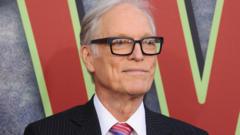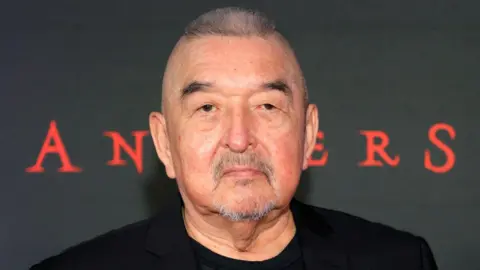Richard Chamberlain, the actor immortalized for his portrayal of Dr. James Kildare and his leading role in the historical epic Shogun, has passed away at 90 years old, as confirmed by his publicist to BBC News. Chamberlain succumbed to complications following a stroke late Saturday night local time (10:15 GMT Sunday) in Waimanalo, Hawaii, just hours ahead of his 91st birthday.
His long-term partner, Martin Rabbett, released a heartfelt statement expressing that "our beloved Richard is with the angels now," adding that "love never dies" and that their bond will accompany him into his next journey. Chamberlain had become an iconic figure through his performances in critically acclaimed mini-series, earning the title of "king of the mini-series" due to his unforgettable roles in Shogun and The Thorn Birds.
Chamberlain's rise to fame began in 1961 with the television series Dr Kildare, which instantly made him a household name and teen idol, boasting millions of viewers weekly. His popularity was solidified as he was voted the most popular male star by Photoplay magazine for three consecutive years from 1963 to 1965.
Transitioning into the 1980s, he solidified his status with roles such as a protagonist in Shogun, centered around Western captured during feudal Japan, and as a conflicted priest in The Thorn Birds, which captured 60% of U.S. television viewers and garnered 16 Emmy nominations. Despite his on-screen romantic appeal, Chamberlain kept his personal life relatively private until his memoir, Shattered Love, released in 2003, where he openly shared that he was gay.
In his memoir, he reflected on the challenges of maintaining a public persona, often attending events with actresses to shield his true self out of fear that revealing his sexuality would jeopardize his career. Throughout his long relationship with Rabbett, they maintained a measure of discretion about their private lives, even through their eventual separation in 2010.
Born on March 31, 1934, in Beverly Hills, California, Chamberlain's early life was shaped by the struggles of his family life, including his father's battle with alcoholism. Initially drawn to painting, a defining moment in a college theatre performance propelled him toward acting. After military service in the Korean War, he returned to California, took acting classes, and subsequently found success with his iconic roles.
Chamberlain's openness about his challenges, including childhood trauma and later acceptance of his identity, impacts his legacy as a trailblazer for representation in Hollywood. His passing marks the end of an era for an actor who greatly influenced American television.





















